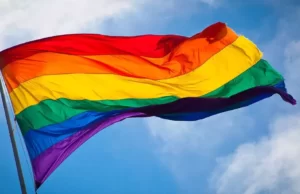Apple has paid a fine of $13.65 million (1.2 billion rubles) for reportedly violating anti-monopoly laws in Russia, the country’s FAS antitrust agency has said.
In a statement on the FAS agency website, Russian authorities said that the tech giant’s App Store rules prohibit iOS application developers from informing customers within the application about the possibility of paying for purchases outside the App Store. They also prohibit the use of alternative payment methods.
According to Reuters, Apple previously “respectfully disagreed” with the ruling that its distribution of apps through its iOS operating system gave its own products a competitive advantage.
It is reported that on January 19, Apple paid a fine of 1,177,988,700 rubles, with the Federal Antimonopoly Service stating that the funds have been transferred to Russia’s federal budget.
In February 2023, the FAS said that Apple paid another $12.1 million fine in another antitrust case, which accused Apple of abusing its dominant position in the mobile apps market.
Apple halted product sales in Russia following the country’s invasion of Ukraine, saying the company stands “with all of the people who are suffering as a result of the violence.”
However, the Silicon Valley-based company has faced numerous antitrust challenges in the past, even within the US. In October, Google CEO Sundar Pichai defended the company’s partnership with Apple during a high-profile antitrust trial.
Russia’s relationship with technology companies
Several significant organizations have faced opposition from Russia. The country blocked access to Amazon, Google, Twitch, Slack, Soundcloud, Viber, Spotify, Fifa, and Nintendo in 2018, in a bid to crackdown on Telegram. The social media messaging service was permanently banned after it failed to turn up with encryption keys that would let authorities read messages being sent through it.
As far back as 2012, Russia also introduced a web blacklist, which reportedly let officials filter out specific domain names and IP addresses. Law enforcement agencies could add URLs to the blacklist without a court order. Hosting services would need to remove banned materials within 72 hours or risk being shut down.
MIT Technology Review indicates that Russia’s war in Ukraine accelerated the deterioration already occurring, further driving the nation’s largest tech companies into isolation and disarray. It has also led to the consolidation of its citizens within a strictly regulated domestic internet, where information originates from official government channels and freedom of speech is considerably restricted.
Featured image: Canva









